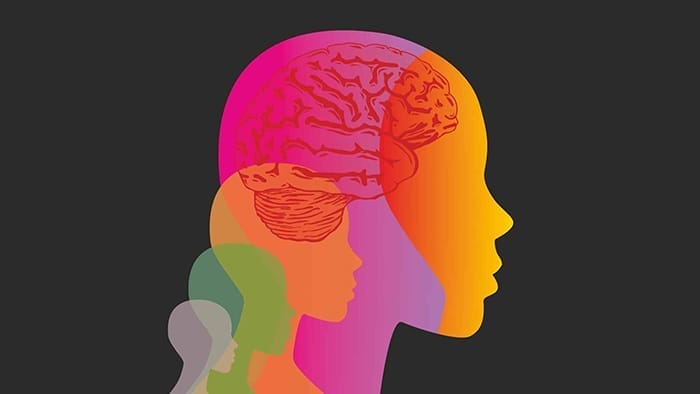
Blog
Personality psychology

Personality psychology is a branch of psychology that examines personality and its characteristics. This field is closely linked with other disciplines such as sociology, social psychology, psychometrics, and more. It facilitates psychological research and experimentation.
فهرست عناوین
ToggleUnderstanding Personality or “Persona”
The word personality is derived from the Latin word persona, meaning “mask.” Personality is a set of organized traits that influence a person’s behavior, emotions, feelings, cognition, and speech in different situations. These traits can shape one’s worldview, self-perception, understanding of the environment, and beliefs.
Can a Person’s Personality Be Changed?
Generally, it is believed that a person’s personality remains stable throughout their life, with only about 5% change possible. Therefore, the idea that one can fundamentally change someone else’s personality is often considered unrealistic.
Personality is studied through various means such as scales, factor analysis, personality questionnaires, and qualitative methods like behavioral observations.
History of Personality Psychology
The roots of personality psychology go back to Ancient Greece, around 400 B.C., when Hippocrates, a renowned Greek physician, proposed that imbalances in bodily fluids—blood, black bile, yellow bile, and phlegm—lead to changes in temperament and personality. This theory laid the foundation for the four temperaments: melancholic, phlegmatic, choleric, and sanguine.
Later, this field expanded significantly with the development of various personality theories and became recognized as personality psychology. One of the pioneers in this area was Gordon Allport, considered the father of personality psychology. Unlike the dominant schools of thought at the time, such as psychoanalysis and behaviorism, Allport emphasized the importance of unique personality traits that remain stable over time. He combined the influence of the unconscious with the empirical focus of behaviorism and developed his own independent theory.
Personality theories have been proposed in various schools of psychology, including psychoanalysis, behaviorism, humanistic psychology, biological psychology, evolutionary psychology, social psychology, and more. This article aims to present a summary of these theories.

Theories of Personality
Below are brief explanations of some of the major personality theories:
Psychoanalytic Theory
Sigmund Freud and his students were pioneers in personality theories and made significant contributions to its development and expansion. Freud stated that the human psyche is composed of three parts: the id, the ego, and the superego. The id is the selfish and irrational part of personality that seeks the immediate gratification of desires; the ego acts as a bridge between the id and the superego and represents the logical part of personality; and the superego consists of the “shoulds” and “should nots,” the internalized rules imposed by parents, which manifest as guilt. Freud limited personality development to five psychosexual stages—oral, anal, phallic, latency, and genital—and argued that human experiences during the first five years of life shape one’s personality. He believed that every individual must pass through these stages successfully; if their basic needs are not met and they become fixated at any stage, the traits of that stage become permanently embedded in their personality.
Carl Gustav Jung, one of Freud’s senior students, introduced personality types. He classified people into two main types—introverted and extroverted—each expressed through feeling, thinking, intuition, and judging. Based on this, he identified eight personality types: extroverted intuitive, extroverted judging, extroverted feeling, extroverted thinking, introverted intuitive, introverted judging, introverted thinking, and introverted feeling. Each type demonstrates its own distinct characteristics.
Behaviorism Theories
Behaviorists, criticizing psychoanalysis, focused on the role of the environment in human behavior and stated that external stimuli can affect the behavior and reactions of an organism. Followers of this school developed theories such as classical conditioning and operant conditioning. Pioneers in this field include Ivan Pavlov, B.F. Skinner, and Edward Thorndike.
Social Cognitive Theories
These theories consider human behavior as a product of cognition and societal expectations. Albert Bandura, one of the main theorists of this school, introduced social learning and believed that human behavior results from modeling and learning from others. In an experiment with a doll named Bobo, he showed that children learn everything they see, and these learnings form the basis of their behavioral and personality patterns.
Another important theory in this school was presented by George Kelly in 1950. Kelly stated that humans are naïve thinkers trying to understand phenomena, and sometimes this understanding is distorted by unusual systems that do not align with social conditions.
Suggested article: Humanistic Approach
Biopsychological Theories
One of the significant fields in personality psychology is biological theories, which examine the physiological and genetic bases of the human brain to reach the fundamental physiological roots of personality. Theorists in this area use brain imaging methods such as Positron Emission Tomography (PET), Electroencephalography (EEG), and functional Magnetic Resonance Imaging (fMRI). Nowadays, the importance of genetics through chromosomes and the DNA they contain has been proven in relation to human personality. According to studies, some genes cause the formation and expression of certain specific behaviors.

Personality Assessment Tools
Today, various questionnaires and tests are used to understand individuals’ personalities, one of the most important being projective tests such as the Rorschach test and Thematic Apperception Test (TAT).
Another test is the MBTI, created by Myers and Briggs, inspired by Jung’s theory of personality types, which examines the unconscious influences on personality.
Some other personality tests focus on personality disorders, including anxiety. One such test is the MMPI, which assesses a wide range of a person’s thoughts, feelings, and behaviors.
برای مشاوره رایگان و رزرو وقت (یا اگر تماس گرفتید و قادر به پاسخگویی نبودیم) شماره تماس خود را وارد کنید. ما به زودی با شما تماس می گیریم!



